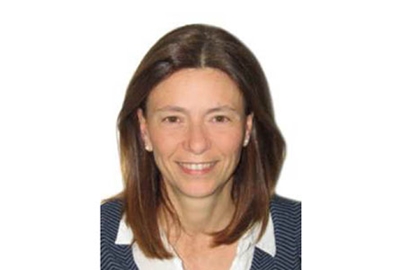With many organizations adopting hybrid working arrangements, internal auditors need to determine what is the best way of working for themselves and their teams. Assessing personal work styles can help internal auditors determine what types of work they can do well from home and which activities are best performed in the office.
On the Frontlines: Finding the Right Working Balance in the New Normal
Blogs Beatrice Saredo Sep 01, 2021

While trying to understand what good has come from the work-from-home environment imposed by the pandemic, I look for what internal auditors can save and learn for the future. It can be difficult to contemplate the flexibility we gained from remote work and the constraints we incorporated.
For many internal auditors, this has been a period of working from home and not losing our jobs. From an outside perspective, we are among the lucky people who are still working and earning a salary. We know that this picture is partially true, yet while some auditors are gaining the maximum benefit from working remotely, others are going a little crazy.
I have about 10 years of experience in auditing, working in a small international team of about 25 auditors who are spread across Europe. Lately, I have noted changes in the audit life cycle (i.e., planning, fieldwork, issue discussion, action identification, report writing, and communication) during the pandemic and working from home. The new normal will not be exactly the same as the pre-pandemic era, and we need to prepare for how to best manage in the post-pandemic environment.
Being auditors, we would like the situation to always be under control so we are ready when the COVID-19 period is finally over. It's then that we will be able to manage some hours and days working from home and work in the office at other times.
It is easy — I would say obvious — to speak in general about the pros and cons of working from home compared to working in the office. While it becomes a bit more difficult to assess these factors when I speak about myself, it becomes very difficult when I work in a team to share thoughts to identify the best balance between home and office.
To assess the right balance, let's do some steps together.
Which audit and nonaudit activities are good to do at home and which are best performed in the office? The answer may depend on several factors — both personal and related to the kind of audit and organization for which auditors work. If we built a matrix where one axis measures our personal capabilities and the other axis lists the audit activities, would it enable us to choose for every intersection which activity should be performed at home versus in the office?
Here are questions that are worthwhile for auditors to answer individually and then share with the team:
- Which activities require 100% of my energy and concentration, and which can I do when I'm tired and have limited energy?
- What is my daily energy cycle? Maybe I realize that I'm very active and energetic in the early morning, I'm a bit tired after lunch, and I feel very creative in the late evening.
Combining these two answers I can plot a graph of which activities should be planned during the different hours of the day. For example, it would be good for me to carry out testing activities in the morning when I'm fresh and concentrated to focus on details. I should plan meetings in the afternoon when sharing and discussing information with others may help me to be more energetic after lunch. Likewise, I can complete planning and brainstorming activities in the late afternoon when I am more creative.
Despite our awareness of which is the best time to do each activity, auditors are not the only ones planning our agendas. We have external constraints depending on our boss, colleagues, family members' needs, etc. However, there are details that we can be aware of in advance:
- The time during the day when our home is quieter.
- Our commuting time.
- Our office working environment (e.g., a single office or an open space shared with many colleagues).
Which leads to the third question: If I could choose when I want to work alone and when it is beneficial for me to be in the office to meet other colleagues and audit clients, how would I plan my week?
And finally, could I try to plan the time I spend at home or in the office taking into account these three questions? I'll return with some examples after I have discussed my findings with my team.


